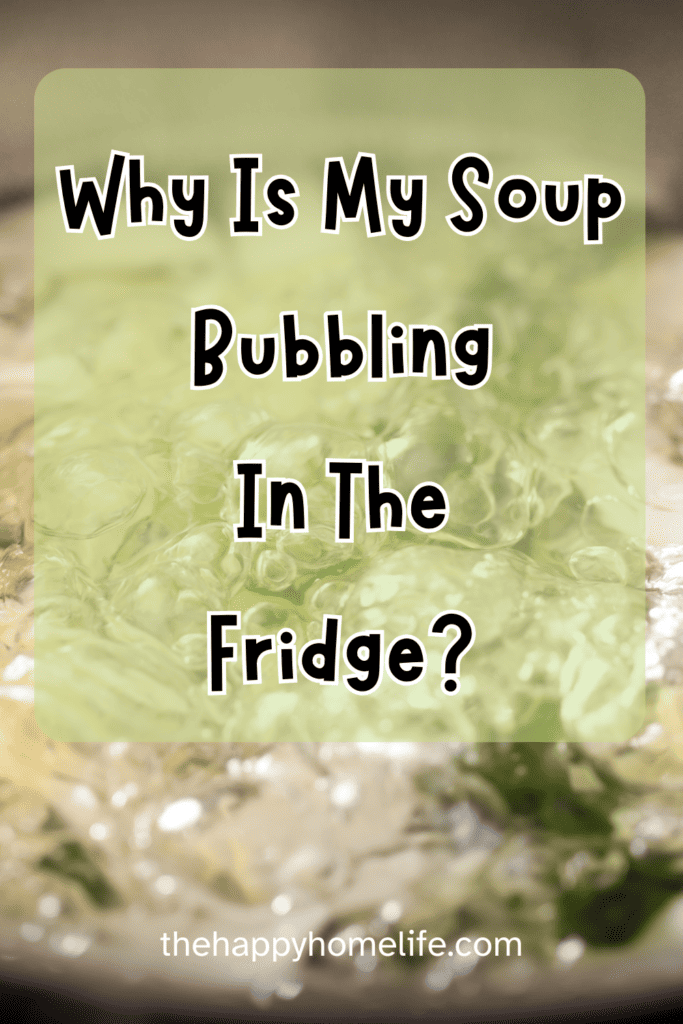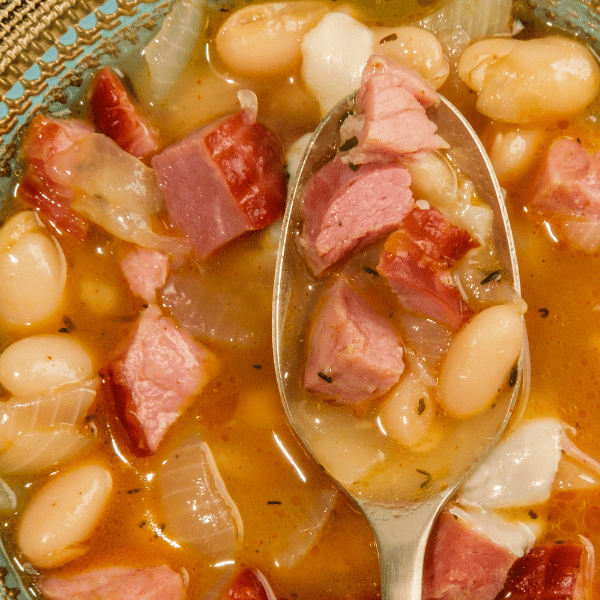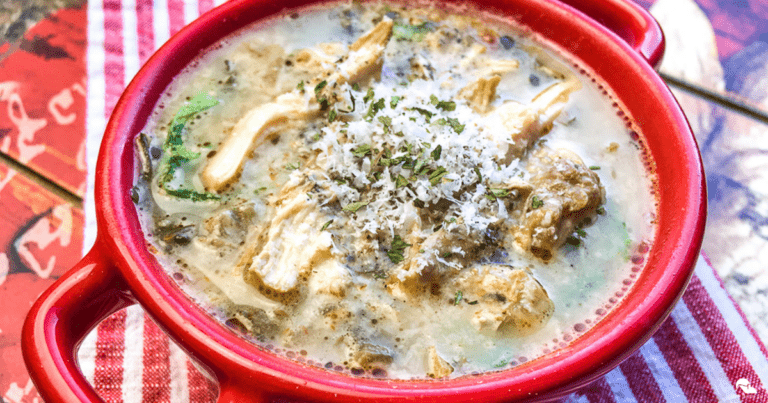Have you ever opened your fridge to find your homemade soup bubbling away like a mysterious cauldron? You may have asked yourself, why is my soup bubbling in the fridge? It’s a puzzling sight that leaves many of us scratching our heads. After all, the fridge is supposed to keep our food cool and fresh, not turn it into a lively science experiment.
So, what could be causing this phenomenon?
Fret no more, and let’s dive into the fascinating world of food science to uncover the reasons behind your bubbling soup and provide some helpful tips to prevent it from happening again. Let’s unravel this culinary mystery together!
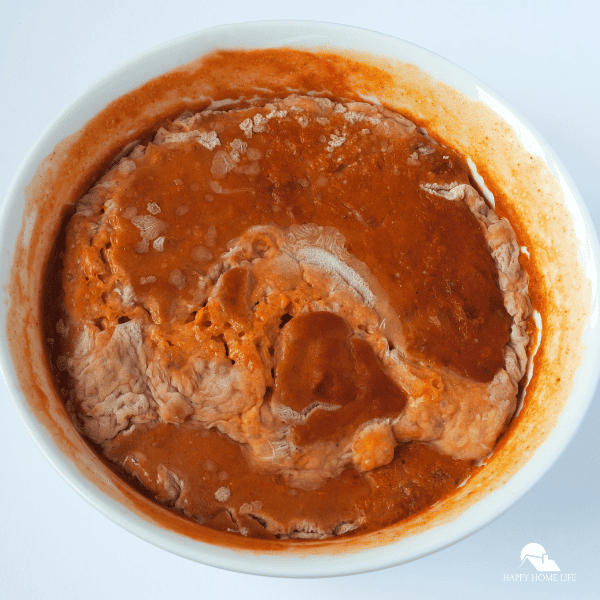
Explanation of soup bubbling in the fridge phenomenon
The bubbling of soup in the fridge can be attributed to one main factor: temperature changes. When you place hot soup in the refrigerator, the cold air causes the soup’s temperature to decrease rapidly. As a result, the air bubbles trapped inside the soup begin to expand, leading to the bubbling effect.
It’s worth noting that while the bubbling may seem alarming, it doesn’t necessarily indicate spoilage or that the soup is unsafe to consume. However, if you notice any unusual smells, off-color, or a significant increase in bubbles, it’s best to err on caution and discard the soup.
You might enjoy these posts:
- How Long Does Cooked Hamburger Last in the Fridge?
- How Long Does Grated Parmesan Cheese Last in the Fridge?
Causes of Soup Bubbling in the Fridge
Spoilage and Bacterial Fermentation
When soup is left in the fridge for an extended period, it may begin to spoil due to the growth of bacteria. Bacterial fermentation can cause the soup to produce gas, leading to bubbling.
This can happen if the soup was not properly heated to a high enough temperature to kill off harmful bacteria before being placed in the fridge. Additionally, if the soup is stored in a container that is not airtight, air can enter and contribute to the growth of bacteria.
Presence of Yeast or Yeast-like Microorganisms
Yeast or yeast-like microorganisms can also cause the soup to bubble in the fridge. These microorganisms can be naturally present in ingredients such as vegetables or added through the use of yeast-based seasonings. When the soup is exposed to slightly warmer temperatures, the yeast or yeast-like microorganisms can become active, leading to fermentation and the production of gas bubbles.
Is fermented soup safe to eat?
Yes, fermented soup is generally safe to eat. Fermentation is a natural process that uses microorganisms like bacteria or yeast to convert sugars and carbohydrates into acids or alcohol. The fermentation process helps to preserve food and enhance its flavor.
Consuming fermented foods, including fermented soup, can have several health benefits. It promotes a healthy gut by introducing beneficial bacteria, known as probiotics, into your digestive system. These probiotics can aid in digestion, promote a strong immune system, and improve overall gut health.
However, it is essential to ensure the safety of fermented soup by following proper food handling practices. Make sure the ingredients used are fresh and clean. Proper fermentation conditions, such as temperature control and hygiene, should be maintained to prevent the growth of harmful bacteria. It is also advisable to store and handle fermented soup properly to prevent spoilage.
How do you know if soup is spoiled?
There are a few signs to look for to determine if soup is spoiled or has gone bad:
Appearance: If the soup appears moldy, has an unusual color, or has a layer of film on the surface, it could be a sign of spoilage.
Smell: A strong unpleasant odor, a sour or rotten smell, or any strange or off-putting odor coming from the soup might indicate spoilage.
Texture: If the soup has a slimy or stringy texture, it is likely spoiled.
Taste: If the soup tastes rancid, off, or has an unpleasant flavor, it is best not to consume it.
Bubbling or fizzing: If you notice any bubbling or fizzing when opening the container or stirring the soup, it may indicate that harmful bacteria have produced gases due to spoilage.
If you observe any of these signs, it is safest to discard the soup rather than consume it. Consuming spoiled soup can lead to food poisoning or other health issues. It is always better to prioritize safety when it comes to spoiled food.
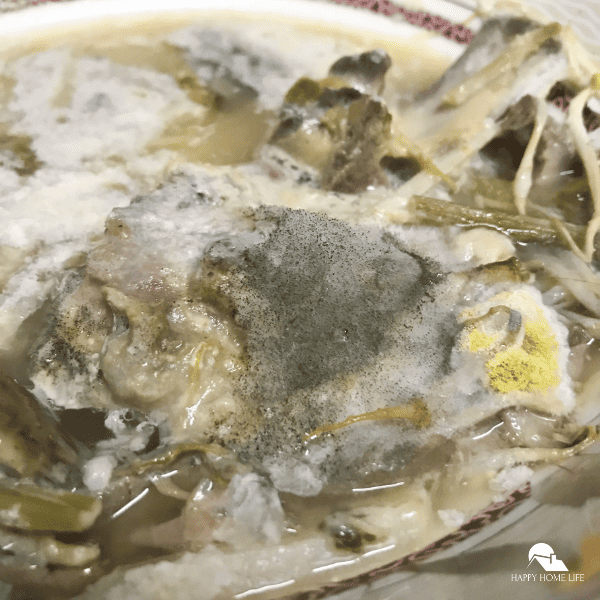
How long before soup goes bad in the fridge?
The shelf life of soup in the fridge can vary depending on the ingredients and how it was prepared. In general, homemade soups should be consumed within 3-4 days when stored properly in the refrigerator. Canned or packaged soups usually have a longer shelf life and can last up to 1-2 weeks past the printed expiration date if unopened. However, always check the package for specific storage instructions and expiration dates. It is important to store soup in airtight containers or covered securely to prevent contamination and maintain its freshness. If you’re unsure about the freshness or safety of the soup, it’s best to err on the side of caution and discard it.
Can you boil bacteria out of soup?
Yes, boiling soup can help to kill many types of bacteria and make it safer to consume. When soup is boiled at a high temperature for an extended period, it can effectively kill or inactivate most harmful bacteria present in the soup.
Boiling the soup for at least a few minutes is recommended to ensure the destruction of bacteria. However, it is important to note that boiling may not eliminate all types of toxins or harmful substances that bacteria may produce.
It is best to follow proper food safety practices, handle and store the soup correctly, and consume it within a reasonable time to minimize the risk of bacterial contamination.
Prevention and Storage Tips
Properly Cooling and Storing Soup
It is important to follow proper cooling and storage techniques to prevent your soup from bubbling in the fridge. After cooking, allow the soup to cool down to room temperature before transferring it to the fridge. Placing hot soup directly in the refrigerator can lead to condensation buildup, which can cause bubbling.
Using Airtight Containers to Avoid Contamination
Using airtight containers is crucial for storing soup in the fridge. This helps to prevent air and moisture from entering, reducing the risk of bacterial contamination and subsequent fermentation. Make sure the lid is sealed tightly before placing the soup in the fridge.
Additionally, it is recommended to store soup in smaller portions rather than in one large container. This allows for faster and more even cooling, reducing the chances of bubbling. Remember to label the containers with the date of preparation to ensure you consume the soup within a safe timeframe.
By following these prevention and storage tips, you can ensure that your soup remains fresh and safe to consume without any bubbling or other unwanted effects.
